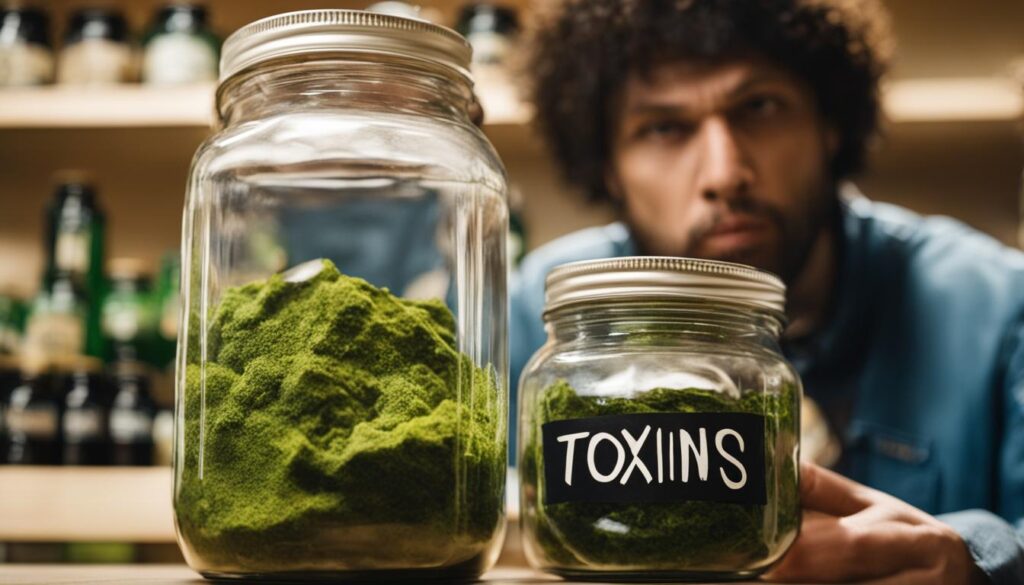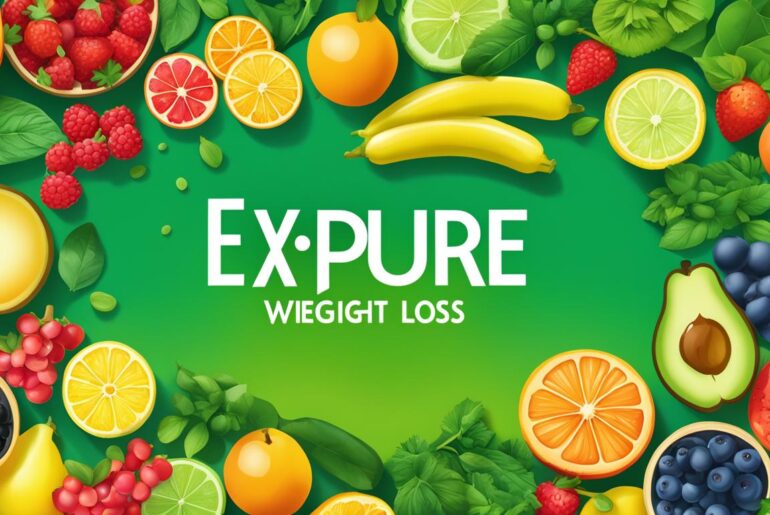Detox diets and cleanses have gained popularity in recent years, with claims of eliminating toxins from the body and providing various health benefits. But do these diets really work? Are they effective in achieving their touted cleanse benefits? Let’s take a closer look.
Detox diets are typically short-term interventions that involve fasting and consuming a strict diet of fruits, vegetables, juices, and water. Proponents of these diets suggest that they can rest the organs, stimulate the liver, and improve circulation. While some individuals may experience short-term weight loss and report feeling more energized during detox diets, there is little scientific evidence to support their effectiveness in eliminating toxins or providing long-term health benefits.
It’s important to understand that the body has its own natural detoxification system, which includes organs like the liver and kidneys. These organs work tirelessly to remove toxins from the body and maintain overall health. Engaging in specific detox diets is not necessary to support this process.
When considering the effectiveness of detox diets, it’s crucial to distinguish between the short-term effects such as weight loss and increased energy and the elimination of toxins (see my post here). While detox diets may result in temporary weight loss, this is mainly due to calorie restriction and loss of fluid, rather than fat loss. As for the elimination of toxins, there is limited scientific evidence to suggest that detox diets effectively detoxify the body.
So, are detox diets worth it? The answer depends on individual goals and preferences. While detox diets can help eliminate harmful processed foods and promote healthier eating habits in the short term, there are several drawbacks to consider. These diets often require extreme calorie restriction, which can lead to nutrient deficiencies, fatigue, and other health issues. They may also promote disordered eating patterns and be challenging to sustain in the long term.
If weight loss or overall health is your goal, focusing on adopting a balanced and nutritious diet, staying hydrated, and engaging in regular physical activity are more effective approaches than going on a detox diet. These lifestyle changes support the body’s natural detoxification processes and provide long-lasting benefits.
Key Takeaways:
- Detox diets and cleanses lack scientific evidence to support their effectiveness in eliminating toxins or providing long-term health benefits.
- Detox diets often result in short-term weight loss due to calorie restriction and loss of fluid, not fat loss.
- The body has its own natural detoxification system, which includes organs like the liver and kidneys.
- Focusing on a balanced and nutritious diet, staying hydrated, and engaging in regular physical activity are more effective ways to support overall health and well-being.
- Careful consideration of the potential benefits and risks is necessary before trying a detox diet.
How Detox Diets Work
Detox diets work by restricting calorie intake, promoting fasting, and eliminating certain foods. The idea behind detox diets is to give the organs a break and stimulate the liver to eliminate toxins.
However, there is little scientific evidence to support the claim that detox diets effectively detoxify the body. While some individuals may experience weight loss during detox diets, this is mainly due to calorie restriction and loss of fluid, rather than fat loss.
Detox diets are often marketed as a method for weight loss, but their effectiveness in this regard is limited and not sustainable in the long term.
Detox diets may lead to short-term weight loss, but the long-term sustainability is questionable. Claims of detoxifying the body through these diets lack scientific evidence.
Are Detox Diets Worth It?
When it comes to deciding whether detox diets are worth it, it ultimately depends on your individual goals and preferences. These diets claim to offer a range of benefits, such as eliminating harmful processed foods and promoting healthier eating habits. Additionally, some people may experience short-term weight loss as a result of following a detox diet.
However, it is essential to consider the potential drawbacks that come with detox diets. One significant concern is the extreme calorie restriction that detox diets often require. This can lead to nutrient deficiencies, fatigue, and other health issues. Moreover, the strict nature of these diets may promote disordered eating patterns and can be challenging to sustain in the long term.
“Detox diets may provide short-term benefits, but they come with potential risks and drawbacks that should not be ignored.”
Ultimately, the decision to try a detox diet should be made after careful consideration of the potential benefits and risks involved. It’s important to weigh the short-term benefits, such as eliminating processed foods and experiencing temporary weight loss, against the potential harm caused by extreme calorie restriction and nutrient deficiencies.
The Pros and Cons of Detox Diets
To further assess the value of detox diets, let’s take a closer look at the pros and cons:
| Pros | Cons |
|---|---|
|
|
It’s important to consider these pros and cons before deciding if a detox diet is worth it for you. While the potential benefits of detox diets are appealing, it’s crucial to prioritize your overall health and well-being by adopting a balanced and nutritious diet, staying hydrated, and engaging in regular physical activity.
By making sustainable lifestyle changes and focusing on long-term habits, you can support your body’s natural detoxification processes without resorting to extreme measures. Remember, the key to optimal health lies in finding a balanced approach that works best for you.
The Truth About Detox Diets

The effectiveness of cleanse diets, commonly known as detox diets, has been widely debated. While proponents argue their ability to promote weight loss and cleanse the body of toxins, the scientific evidence supporting these claims is limited.
During a detox diet, individuals often experience short-term weight loss. However, it’s essential to understand that this weight loss is primarily a result of calorie restriction rather than the elimination of toxins from the body.
Different detox diets advocate specific food restrictions, such as eliminating processed foods, sugar, caffeine, or alcohol. Although these dietary changes may lead to improved health outcomes in some cases, they do not necessarily cleanse or detoxify the body.
The body has its own natural detoxification system, which involves organs like the liver and kidneys. These organs work together to eliminate toxins and waste products from the body. Engaging in a detox diet does not provide any meaningful enhancement or support to this natural detoxification process.
Instead of relying on detox diets, prioritizing a balanced and nutritious diet is key to supporting overall health and well-being. Consuming a variety of fruits, vegetables, whole grains, lean proteins, and healthy fats provides the body with the necessary nutrients for optimal functioning.
Furthermore, staying hydrated by drinking an adequate amount of water throughout the day is essential for flushing out toxins and maintaining proper bodily functions.
Regular physical activity is another vital aspect of supporting the body’s natural detoxification process. Engaging in exercises like cardio, strength training, or yoga promotes circulation, enhances lymphatic function, and helps remove waste products.
The Pros and Cons of Detox Diets
The pros and cons of detox diets should be carefully weighed before deciding to pursue one. While detox diets may provide a short-term sense of accomplishment or weight loss, they are not sustainable in the long term. Detox diets often involve extreme calorie restriction and can result in nutrient deficiencies, fatigue, and other adverse health effects.
Moreover, the restrictive nature of detox diets can lead to disordered eating patterns, as individuals may become overly fixated on food restrictions and experience guilt or anxiety if they deviate from the prescribed plan. This can contribute to an unhealthy relationship with food and negatively impact long-term well-being.
It’s important to recognize that the concept of a quick fix or one-size-fits-all approach to health and weight loss is often misleading. Each person’s body and nutritional needs are unique, making it crucial to consult with a healthcare professional or registered dietitian before undertaking any drastic dietary changes.
| Pros of Detox Diets | Cons of Detox Diets |
|---|---|
| – Short-term weight loss | – Extreme calorie restriction |
| – Potential elimination of processed foods | – Nutrient deficiencies |
| – Increased awareness of healthy eating | – Fatigue and other adverse health effects |
| – The potential to break unhealthy eating habits | – Promotion of disordered eating patterns |
Are Detox Diets Effective for Weight Loss?
While detox diets may lead to short-term weight loss, it’s important to recognize that this weight loss is primarily due to water loss and calorie restriction. Once individuals resume their regular eating patterns, the weight lost during a detox diet is often regained.
Long-term weight management requires sustainable lifestyle changes, including a well-balanced diet and regular physical activity. Focusing on creating a calorie deficit through portion control, mindful eating, and increasing physical activity is more effective and sustainable for achieving and maintaining weight loss goals.
Overall, while detox diets may have some short-term benefits and appeal, they are not a reliable or effective strategy for long-term weight loss, cleansing the body, or improving overall health. Prioritizing healthy eating habits, staying hydrated, and engaging in regular physical activity are the cornerstones of maintaining a healthy body and supporting natural detoxification processes.
Conclusion
In conclusion, there is a lack of scientific evidence to support the effectiveness of detox diets and cleanses. While some individuals may experience short-term weight loss and report feeling more energized, these effects are primarily due to calorie restriction rather than the elimination of toxins. Therefore, detox diets are not a sustainable or effective long-term solution for weight loss or overall health.
Instead of relying on detox diets, it is more beneficial to focus on consuming a balanced and nutritious diet, staying hydrated, and engaging in regular physical activity. These lifestyle habits support the body’s natural detoxification processes and promote overall health and well-being.
When considering whether detox diets are worth it, it is essential to weigh the potential benefits against the drawbacks. While detox diets may temporarily eliminate processed foods and promote healthier eating habits, they often require extreme calorie restriction, which can lead to nutrient deficiencies and other health issues. Additionally, detox diets can promote disordered eating patterns and may be challenging to sustain in the long term.
In summary, detox diets and cleanses may be popular, but they are not supported by scientific evidence in terms of effectiveness. To achieve long-term health and wellness goals, it is recommended to focus on adopting a healthy lifestyle that includes a balanced diet, hydration, and regular exercise.




